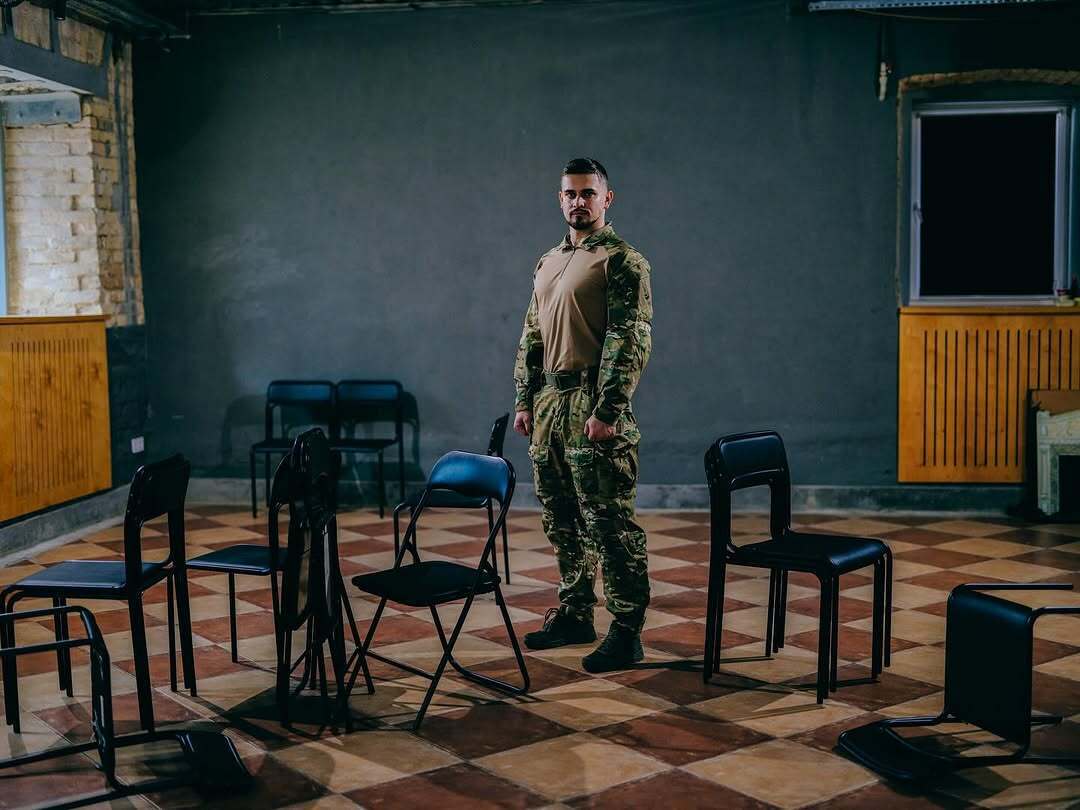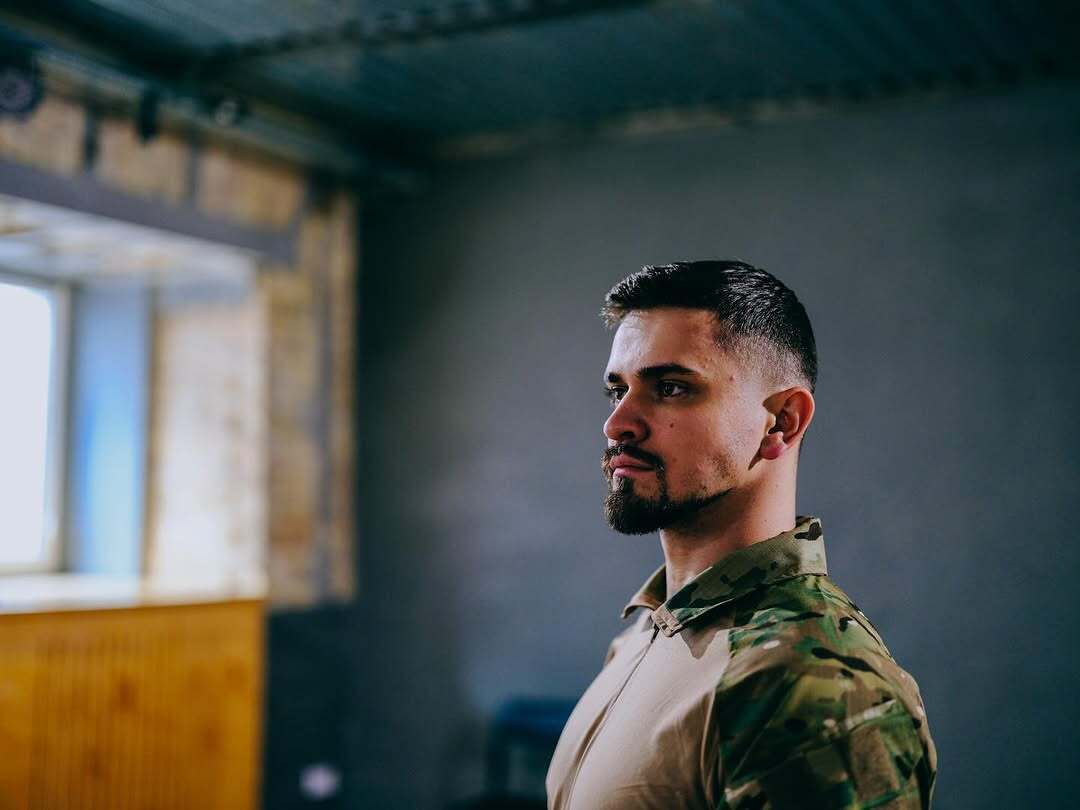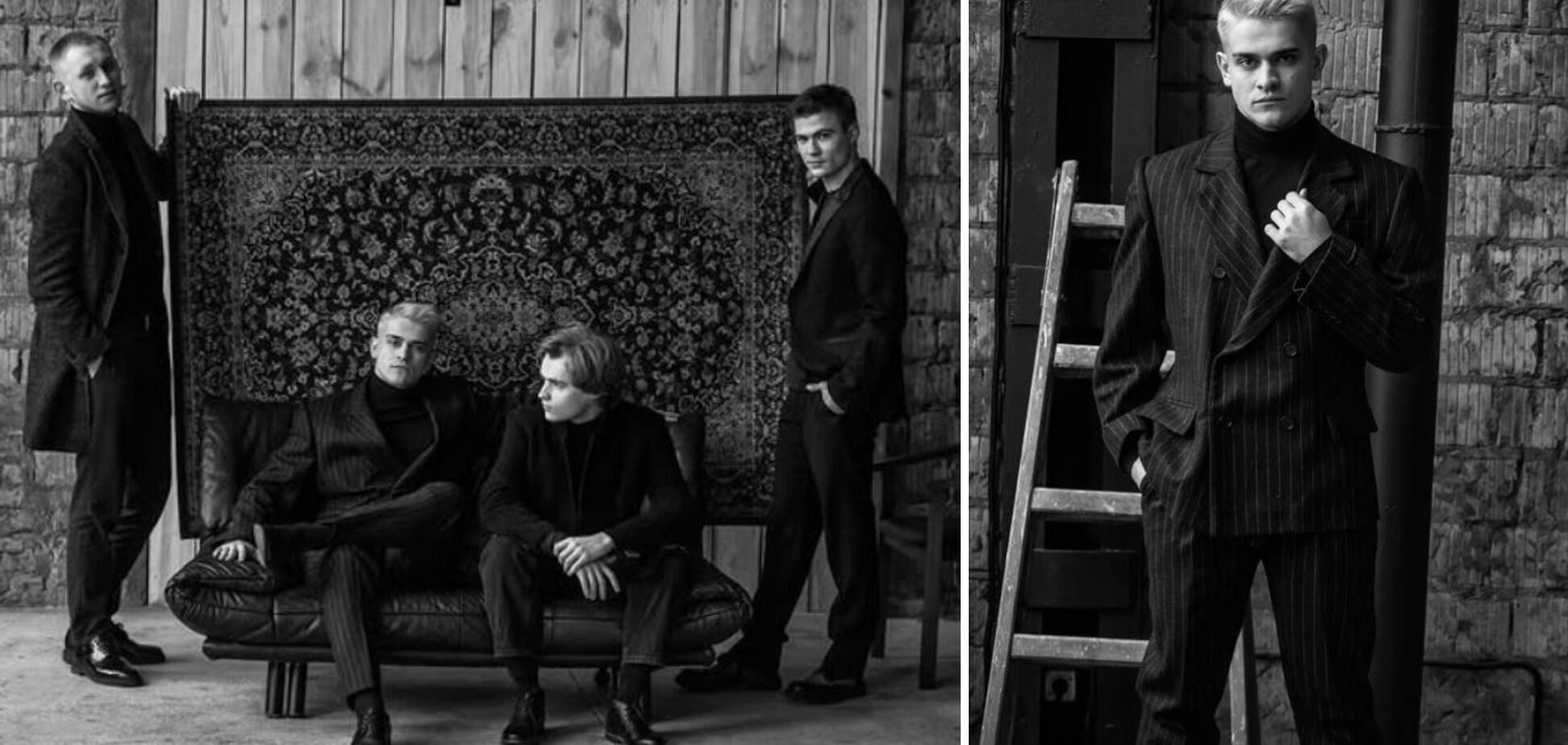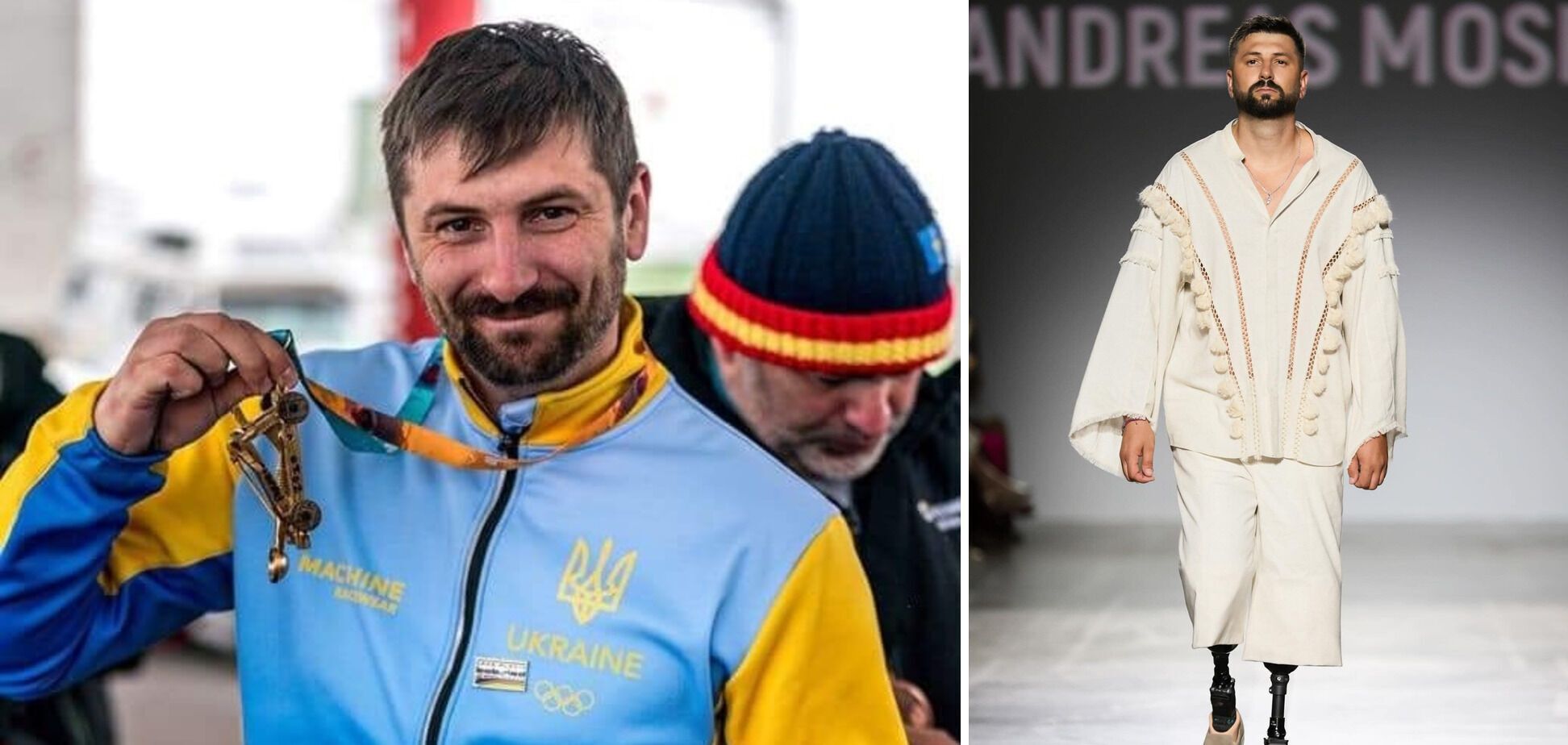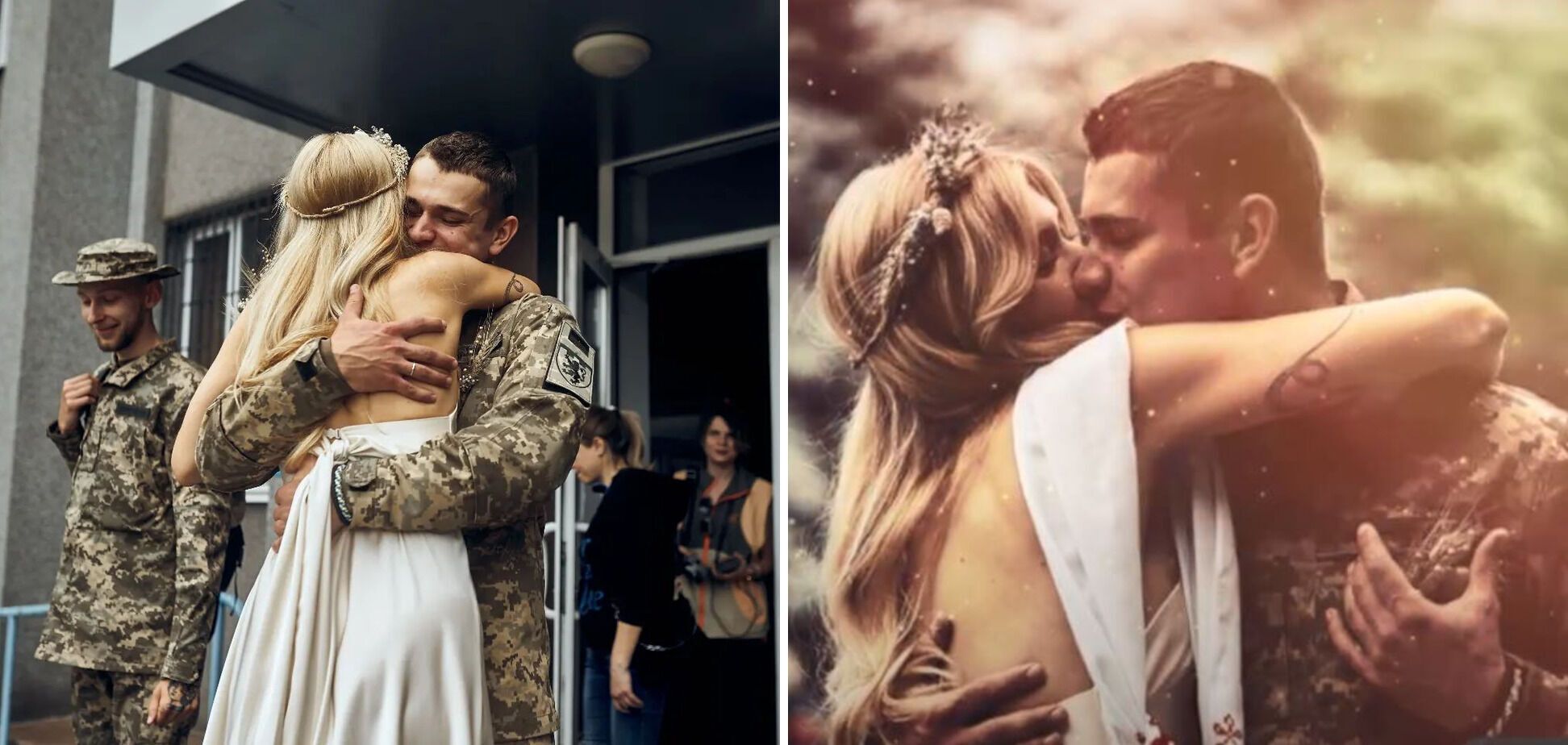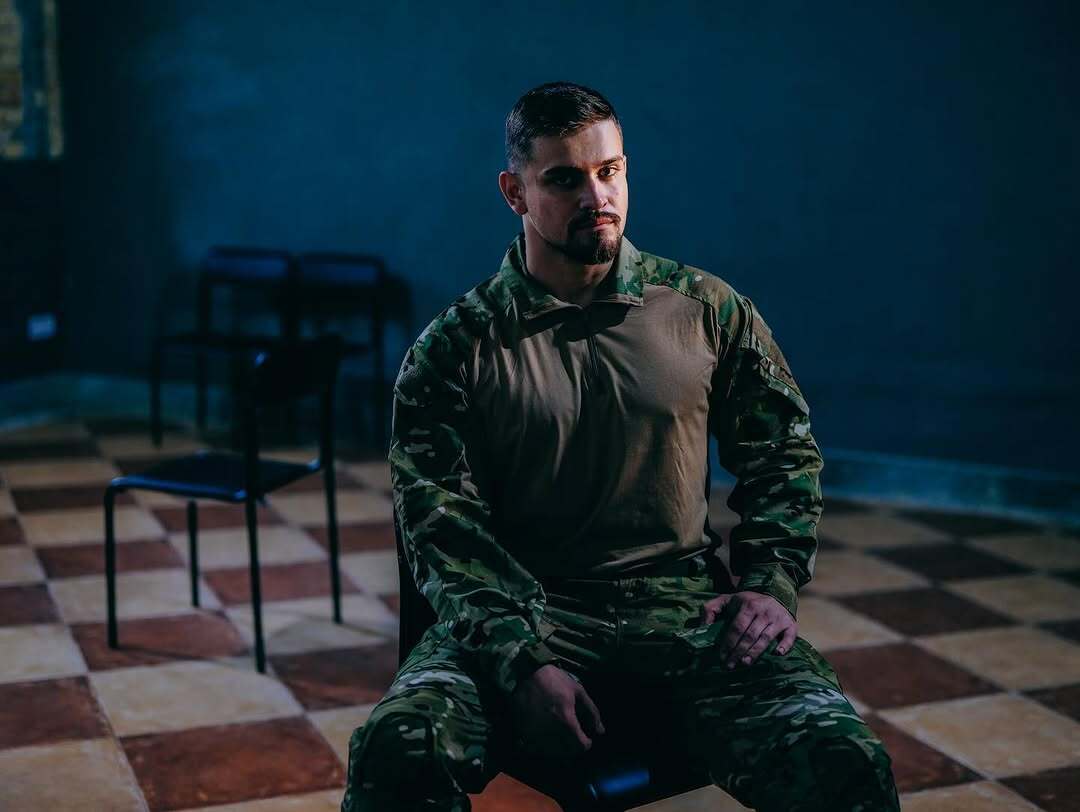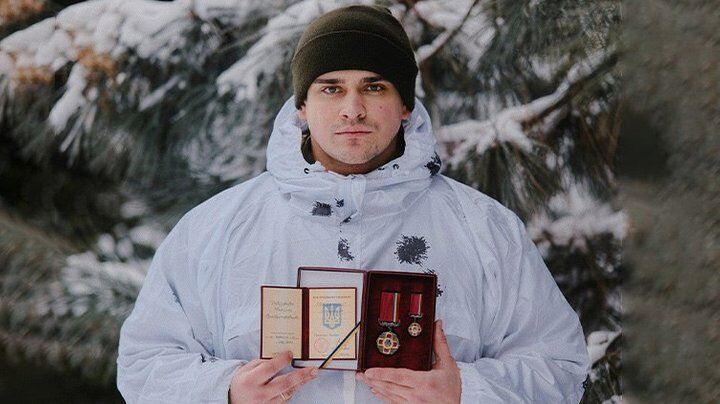Entertainment
"It's impossible to imagine this". Warrior actor Maksym Devizorov on his Forbes list brothers, two brothers at war, and an unexpected divorce
Actor Maksym Devizorov is best known for his roles in the films "Peaceful 21," "The First Swallows," "The New Girl," and "The Best Weekend." He stood up to defend the country from the first days of the full-scale invasion. He served in the Donetsk and Kharkiv areas as a member of the 103rd separate territorial defense brigade of the Armed Forces of Ukraine. Currently, he is working in the Communications Department of the Ukrainian Armed Forces' TRO Command, where he and his team create documentaries and news stories about the war. He is gradually returning to his profession, developing the Veterans' Theater project and acting in the Kyiv Drama and Comedy Theater on the left bank of the Dnipro River.
In an interview with OBOZ.UA, Maksym Devizorov admitted how the war changed him, explained why his marriage to actress Svitlana Hordienko, whom he married after the full-scale invasion, broke up. He also spoke about his two brothers who are also defending the country with arms.
- Maksym, how did you get into the Ukrainian Armed Forces? Did you have any military experience?
- I had minimal military training as part of the preparation for the movie "Peaceful 21." A little bit of drill, work with weapons. I was in the Kyiv military enlistment office to which I was assigned the very next day after the start of the full-scale invasion. But, given the number of people who wanted to join the armed forces, I was told that those with combat experience were given priority. So I had to look for a better life in western Ukraine.
After a while, my friends and I went to Lviv to see our girls off abroad. I was registered for military service there. I remember the final stage of registration was already underway, and there were a lot of men, I thought: "How nice, such unity!" A soldier approached and asked, "Who wants to go to war?" But for some reason, I was the only one who raised his hand. Then I heard in the line that someone had already brought a certificate saying that he could not fight... Although there were more people who came to register, many volunteers. But at that particular moment, the following situation occurred.
- In one of your interviews, you said that your decision to go to war was influenced by the death of your colleague and friend Pasha Li during the battles for Kyiv region.
- Pasha is the brightest person I have ever known. He lived on such a high – a hedonist, an aesthete, an incredibly kind man. He brought cookies to the set that he baked himself, and called them "pashalishki". He treated the entire film crew to them. I learned about his death from the Internet – we were traveling in the car to Lviv. For some time I hoped that it was not true. And then my friends confirmed that this tragedy really happened. From time to time I correspond with his mother on Facebook. She asks me to take care of myself and blesses me. Unfortunately, I was unable to attend the premiere of the documentary that was recently filmed about Pasha. I really want to go to his cemetery – he is buried in the village of Vorokhta, Ivano-Frankivsk region.
- You have such an unusual call sign, Kinder. Why did you decide to call yourself that?
- There were several reasons for this. I dreamed of having a family, of having a child – I was thinking of a boy, but I would have been very happy with a girl. The second reason is that when we moved to Donetsk region, we were first stationed in a kindergarten. And the third is a well-known fact about me: I love sweets, so the choice of my call sign was obvious. And I was right (laughs). During the holidays, volunteers and friends would constantly send me sweets, most often it was candy. And then, when the second and third season in the army began, I decided that something had to change, and now I have the call sign "Maksandi". It's the name of the ice cream from McDonald's, plus the association with my name.
- How did your family react to your decision?
- My mother was understanding. And then my brothers left as well. My brother Valentyn joined the Marines, and my cousin Denys joined the Third Assault Brigade. Of course, my mom, her sister, and my aunt are very worried. My mom loves the TV series "Friends", and whenever I had the opportunity and connection, I sent her short funny videos from there to entertain her a little. Sometimes I would repeat myself, and she would reply to me: "That doesn't count." She's a great girl. She is a chemist by profession, but she was never afraid to change her life dramatically. Now it's a little easier, I can see her often, and the boys are fighting. My brother Denis is currently in the hospital, having undergone surgery. I invited him to a performance at our theater. I hope that we will celebrate the New Year together. If Valentin does manage to come, it will be a real New Year's miracle for all of us.
- What were your New Year's holidays like when you were at war?
- They were held in a close circle of comrades, in dugouts. One day we were just at our position. Neither Santa Claus nor St. Nicholas came to visit us, but we had a visit from drone pilots who showed us New Year's fireworks - they were hunting for an enemy tank, which they successfully managed to destroy. It was a bit of a waste, but I liked it – it was a great show.
- How did the war change you? Your colleague, the head of the Franko Theater and former Minister of Culture Yevhen Nyshchuk, who went to the front as a soldier, told us in an interview that he had to get used to the fact that he had to hide his managerial ambitions. And Oleksandr Pecherytsia, an actor in the same theater who had been in the Armed Forces for a year and a half, recalled that he felt the loss of personal freedom acutely.
- I am quite flexible, especially when it comes to working in a team. In addition, I was very lucky with my commander and my comrades. We were always ready to lend a shoulder to each other, and together we solved the tasks we were given. The first few weeks when I returned to Kyiv, I was even restless because there were no artistic exits or arrivals. It had become so normal there that I felt anxious when I didn't hear it. But I had to get used to the damn air raid alarms - that's such a striking difference.
To be honest, at the beginning of my service, I was worried about losing my childlike spontaneity, and my tendency to play and joke, because it all helps a lot in the profession. And it seems to me that I have not lost it. At the same time, I gained a lot of experience – I heard a lot of stories, and witnessed very atypical situations that greatly influenced my worldview.
- What was the most difficult thing for you during the war?
- Probably, like for every soldier, losing my comrades-in-arms. When this happens, it is very hard. In moments of despair, you even think that something terrible should happen to you, just so you don't have to mourn your friends anymore. But I have no hatred for my enemies, this emotion is not inherent in me. I have anger.
- It so happened that one of your first film roles was in the Russian TV series After School. Did you go to work in Moscow?
- It was when I was still a teenager, in 2012. The filming took place not in Russia, but in Tallinn, Estonia. The team consisted mostly of Russians. But local productions were also involved. Interestingly, my partner in the movie was Oleg Skrypka. He played a street musician nicknamed Ketchup. And my character wanted to become a kind of new Kurt Cobain – to live under a bridge, to earn money by playing. Oleg played my character's mentor and taught him to play the guitar. We talked a lot off the set. I started acting very early. First, in commercials with my brother, and then there was a feature film with Irma Vitovska, but I think this project never came out. I think I was about eight years old at the time.
- Together with your fellow soldiers, you recently founded the Veterans' Theater project in Kyiv. Tell us about it.
- This is a joint project of TRO Media and the Playwrights' Theater. Here, our soldiers get the necessary skills to create high-quality drama based on their own experiences, feelings, and sensations. In June, we started training, and in October we held a festival of first plays. And now the premiere of the play "Military Mom," created as part of the project, has already taken place at the Kyiv Theater on the Left Bank. Its author is a veteran, combat medic Alina Sarnatska. The play is about choices, pain, and humanity during war. It's about how the trenches become home, explosions become everyday music, and humor becomes armor that helps keep your spirit up. This play was also directed by a soldier, Oleksandr Tkachuk, with whom we are now serving together. Among the actors are both professionals and veterans, active military personnel.
We are now preparing for the second set. There were a lot of people who wanted to try their hand at creating drama. The boys and girls need this tool to share their experiences with those who understand what it is like to be at war. Each soldier has his own story. For example, Major Mykola Levkun lost both his legs in 2017, but managed to keep his destiny on the rails of life with honor. Moreover, after receiving prosthetics in Germany, he became the champion of the International Parabobsleigh Tournament on the Olympic track. We met at Ukrainian Fashion Week, where he participated as a model in one of the shows. I invited him to the Veterans Theater. He says he likes it and feels most comfortable on stage.
- We are talking to you at the premiere of the film Train to December 31, which will be released in cinemas on January 1. In the movie, you play a soldier.
- When the authors of the film found out that I was in Kyiv, they invited me to a casting call. Initially, I was offered the role of the groom, who is also a soldier. However, due to service restrictions, I had very little free time – a maximum of a few shooting shifts, and that work required a longer process, so they approved another soldier. In a couple of night shifts, we shot everything we needed. I liked the movie we saw today. I love it when jokes are really funny, and the density of humor in this movie was a pleasant surprise. It is clear that the scriptwriters and creators had a lot of fun working on the movie.
- Have there been any roles in your creative life that you turned down?
- Of course. For example, because the script was of poor quality or the character didn't respond. However, I have never regretted it, because when I saw the result, I realized that I had done the right thing. But it also happened the other way around – several projects where I saw myself in a role and imagined how I could play it did not work out for various reasons. But this is not a life's work, as, for example, happened with Will Smith, who was offered to play Neo in the cult movie The Matrix, and many years later he sincerely admitted that he regretted not working in this film. Or Matt Damon, who turned down the lead role in Avatar, also later said that he regretted it. He said he would never act in a movie that earned one billion dollars again (laughs).
Once my dad, having watched one of the films with my participation, advised me not to play in such things anymore. It was a project like Real Mysticism, where some domestic crimes were reconstructed. My dad went to church and said that he didn't like these stories and wouldn't want his son to participate in such things.
- When your father passed away due to illness, you said in one of your interviews that you had to go to the set a few days after the funeral. Why didn't you tell anyone about the loss?
- Well, I am an introverted person. I needed time to accept this reality. And some pitying words would have only depressed me even more. When I felt that I was coping, I shared my pain with my closest circle.
- In May 2022, you married actress Svitlana Gordienko, and in July of this year it became known that you are no longer a married couple. What is the reason for this?
- I'll say it in one sentence, and we won't talk about it anymore, okay? I just met the wrong person on my way. A rotten apple. That's the only reason. We are not in any kind of relationship at the moment – it makes no sense to me.
- This is not your first marriage. Was there another one, probably student love?
- Yes, there was a student marriage.
- And now is your heart free or are you in a relationship?
- It is free.
- You paused before answering.
- No, not because of that. I was just trying to eat a quick candy while you were asking.
- Listen, you look so gorgeous and you're always eating sweets! What's the secret?
- It's years of training (laughs). Every day, every day.
- I would like to ask you something else: in your opinion, do artists have a place in the war?
- I can't say that actors and representatives of other professions from the world of film production have somehow stayed away from what is happening in the country. A large percentage of them are in the army. Culture is a crucial factor for the preservation of the nation. Therefore, we need to allow theaters and other cultural institutions to function properly. But at the same time, creative people have a place at the front, just like builders, drivers, and businessmen. We had three actors from Lviv's Zankovetska Theater in our company. There were people from the Forbes list. Everyone had a different income, different life principles, and experience. But we all worked for the same thing: to protect our families.
- Do you keep in touch with them? What is the fate of these people?
- Some stayed in the brigade, some transferred, and some were written off due to age. We keep in touch, and congratulate each other on holidays. Just now, two of my close friends came to visit me in Kyiv during my vacation. I invited them to the premiere screening, and we watched Trainspotting on December 31 together.
- Is there anyone among these friends whom you will take as a godfather when the boy you dream of is born?
- There is a candidate for this job (laughs). My brother-in-law was a witness at the wedding. Now he says: "I agreed with the intention that I would become a godfather, but the bet didn't go through. You owe me now!"
- Last December, you received the Order of Merit of the third degree from Volodymyr Zelenskyy. How do you feel about awards in general?
- Well, such honors are given for worthy deeds. And I think the families of the soldiers are proud of their courage. But for the soldier himself, it doesn't change anything, in the long run. As they joke at war, "there are no benefits, only status". When I received my combatant certificate, which confirms my status as a war veteran, I confess that I was overwhelmed by mixed feelings. One of my brothers is 26, the other is 24. We are all veterans. A few years ago, it was simply impossible to imagine this. Even in our fantasies, we would not have invented such a development.
Only verified information is available on the OBOZ.UA Telegram channel and Viber. Do not fall for fakes!







